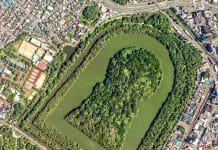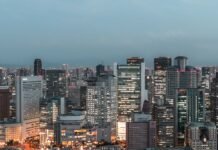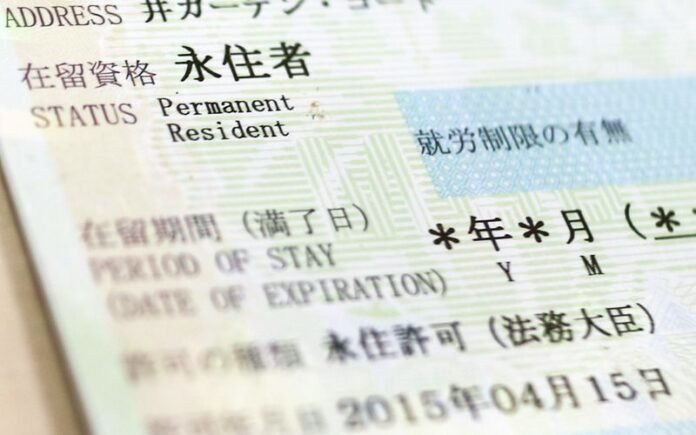
For many of us Permanent Residency is about more than just a piece of paper. It is something that defines us and our commitment to the new country we chose to call home. permanent residency japan
In all the years I’ve lived in Japan, I find you can divide the foreign population here into two categories. There are transients, i.e. those who come to Japan just for a year or two. They seek to sample the culture and travel a bit, before returning to their homeland to begin their “real” career.
The second group, the one which I believe I probably fall into is the “lifers”. In other words, those who aren’t just visitors, but have chosen to make Japan their home.
For these people, there are three options available to secure your long-term future stability in Japan.
Table of Contents
Turning Japanese?
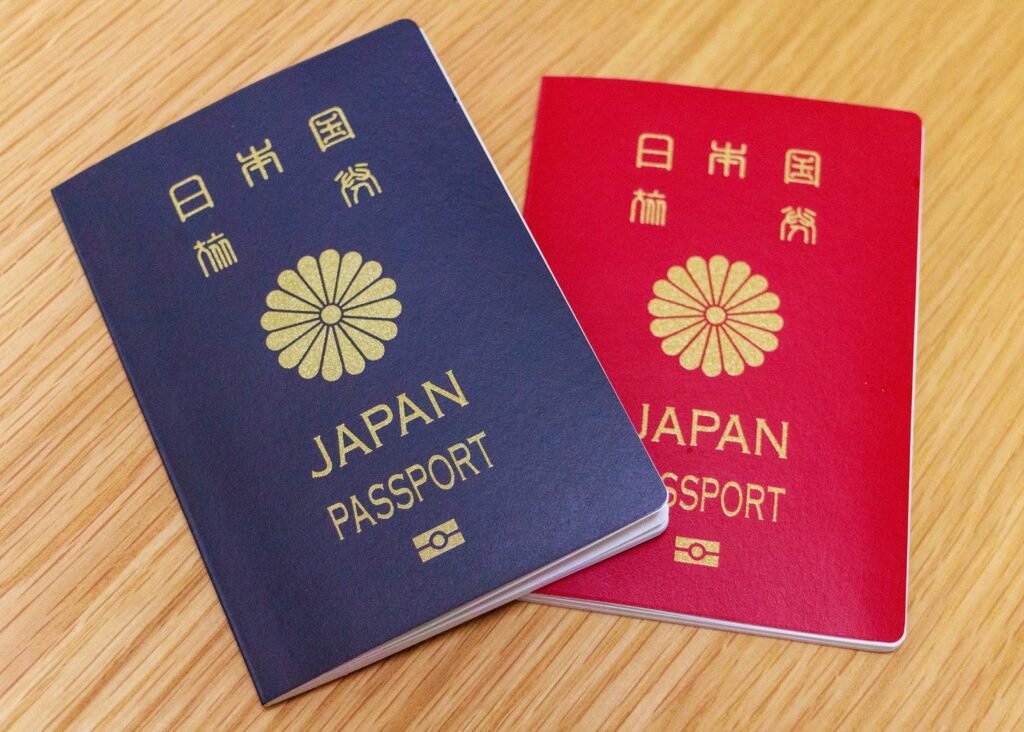
Option 1 is to take Japanese nationality. However, due to the rather hawkish laws around citizenship, one cannot do so unless they relinquish their previous nationality. For reasons social, personal and indeed familial, many foreigners in Japan are, understandably, reluctant to do so.
Getting Married

The second option, and one which I decided to follow last month, is marriage to a Japanese national. My wife and I have known each other for years, and we certainly didn’t formalize our marriage for visa purposes. However, changing from a standard working visa to a spousal visa does have some obvious benefits. You are free to engage in any kind of work you like. So long as you pay your taxes on time, you won’t have any trouble. In today’s “gig” economy, the spousal visa makes taking on extra “side jobs” far easier.
However, today we will discuss the most common form of long-term commitment that most foreigners seek to make to Japan: permanent residency.
Permanent Residency (After all, that’s why you’re reading this!)
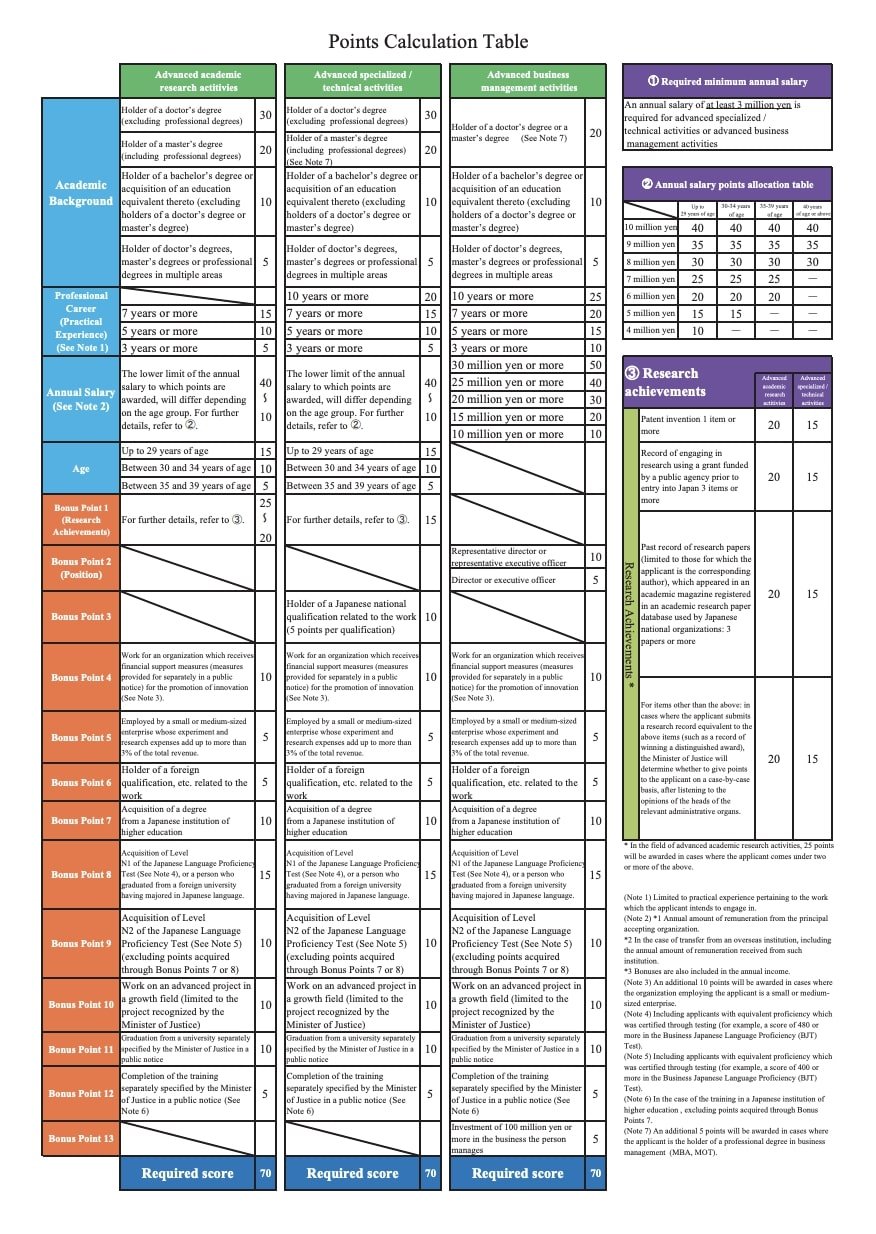
Permanent residents can engage in any kind of work they wish, much like the spouses of Japanese nationals. However, they also no longer need to contend with the pressures of a time-restricted visa. Most visas in Japan, including spousal visas, must be renewed at one-year, three-year, or five-year intervals. Permanent residency dispenses with these time limits. However, you will still need to renew your ID card every seven years.
So, it’s easy to see why foreigners in Japan see permanent residency as something of a “holy grail”.
However, reaching this milestone requires time, effort and to some extent a little bit of good luck as well.
Thankfully, we at Osaka.com have got your back once again. Join us today as we run down a complete guide to the many pathways one can take to get Permanent Residency in Japan. Let’s start with the shortest route:
The One Year Route
Don’t get too excited folks. This pathway to permanent residency is a very exclusive one. To qualify to apply for permanent residency after only one year, you need to score 80 points or above on Japan’s immigration assessment system.
This new system came in back in 2017. Part of a wider range of immigration reforms, the points system aims to attract the top talent from various industries.
As a result, the bar to attain 80 points rests very high. To be honest, it probably lies beyond most of you who will read this today.
The diagram above shows a full breakdown of how the immigration points total adds up.
In short, you’ll probably need to be educated to doctorate or PHD level with a salary in excess of 10 million yen per year. You will also have age on your side and possess specialist knowledge in one of the required fields.
As a mere writer/teacher in their 30s I make around 4.5 million yen per year. Hence, I’m only sitting around 40 points at the moment. I should also add here that attaining permanent residency after one year lies at the immigration bureau’s discretion. So even if you fit the criteria, it is not automatic.
The 3 Year Route
There are two divergent paths one can follow here to attain permanent residency after 3 years. The first runs along similar lines to that of the one-year route. However, if applying after 3 years of living in Japan, you only need 70 points on the immigration system chart.
The other, simpler path, is to marry a Japanese national. Once you reach three years of marriage, then you can apply for permanent residency.
However, the Japanese government remains concerned about the possibility of so-called “sham marriages”. When someone marries a Japanese national not out of love. Instead the marriage stems from a desire to gain access to Japan’s job market and various social care systems.
Added Requirements
Requiring that a couple marry 3 years prior to permanent residency is one way the government discourages this practice.
It is also required that you live together in Japan for at least one year before applying. This time runs alongside the 3 year marriage requirement, not in addition to it. Assuming you move in together within 2 years of marriage, you will be eligible to apply for permanent residency by the end of year 3.
You must reside in Japan and can prove this at the time when you apply.
Also, spousal visas are typically in one, three or five year increments. You cannot apply for permanent residency unless you have a visa of at least 3 years in length.
Most spousal visas usually have 3 years of validity. However in some exceptional cases this may only be one year. This is down to the immigration bureau and not something that you, as a resident have any control over.
The Ten Year Route (AKA The Long Haul)!
Unfortunately for most foreign immigrants to Japan, a minimum of ten years of continuous residence is the base from which you can apply for permanent residency. These ten years must be unbroken.
Take myself as an example.
I first came to live in Japan in 2006, however when I left in 2010 to take up a new job in Hong Kong, that clock reset to zero. I returned to Osaka in early 2013. Hence, despite my recent marriage, the earliest I can apply for permanent residency will be February 2023. That will be ten years since I started my current, continuous period of Japanese residence. My 3 year wedding anniversary will be in November 2024. So, from my own point of view, applying under the ten years of continuous residence condition makes the most sense.
In principal, anyone who has worked in Japan for ten consecutive years under a working visa is eligible for permanent residency. However, there are a few caveats, as we will now explore in more detail.
Restrictions on Who Can Apply for Permanent Residency
The biggest potential obstacle to applying for Permanent Residency probably lies in the duration of your current working visa. In order to apply for permanent residency, regardless of how many years you have worked in Japan, your current visa must be at least a 3-year visa.
For some common types of foreign worker, such as English teachers, labourers, etc. employment contracts are only for a maximum of one year.
As a result, obtaining a 3-year visa can be very difficult for these workers. Some people get it at the first time of asking, others don’t.
Indeed, in my own case, I was given a 1 year visa for seven consecutive years before finally getting that elusive 3-year renewal.
On each occasion from 2014 onwards, I requested a 3 year visa at the time of renewal, but was only granted 1 year. Numerous anecdotes from other frustrated foreign workers here on perennial one-year contracts suggest I certainly wasn’t the only one affected by this.
Be Patient
My only advice in this regard is to get all your paperwork in order as best as you can, and keep being polite and professional each time you renew.
The immigration bureau is not legally required to explain or defend these decisions. So, whilst it can be very easy to take it personally, especially when others in the same company as you, doing the same job, get 3 year visas, I would implore you not to feel that way.
This is randomized, faceless bureaucracy at its very worst. It genuinely seems like a totally random, arbitrary decision, whether you’ll get 3 years or 1 year if you’re on a one year contract.
Also, always request 3 years, even if you didn’t get it last time. Also, if you can, filling out the forms in Japanese rather than English may help too.
Bizarrely enough, apart from changing the dates on a couple of the forms, my visa renewal application this year was identical, word for word, to that which I submitted in 2020. However, this time, I was granted 3 years. Persistence is the key, I suppose.
Of course, if you are able to do so, finding a job with a contract term longer than one year is another way to get around this problem.
As one anecdotal example, a fellow teacher I know, who was on particularly good terms with their bosses, managed to negotiate a 13 month contract as opposed to a 12 month one.
Since they could demonstrate to immigration that they had guaranteed employment for a period of longer than 1 year, they got a 3 year visa.
Permanent Residency is More than Just a Question of Visas

Of course, in addition to the 3 year visa requirement, there are also other minimum levels that an applicant must meet. For example, if you have not currently enrolled in Japan’s Public Health Insurance scheme, and you want to apply for permanent residency in the future, then I would urge you to do so as soon as possible. Although it is not an expressly stated requirement, anecdotal reports suggest that the immigration bureau’s assessors do take this into consideration when deciding whether to approve or decline a request for permanent residency.
What is mandatory is tax. If you haven’t kept your taxes in order, then you will be in trouble. You will need to be able to show tax records for at least 5 years. Assuming that you have paid income tax and municipal tax when you were supposed to, obtaining records proving this from your local city hall shouldn’t be difficult.
Money, Money, Money
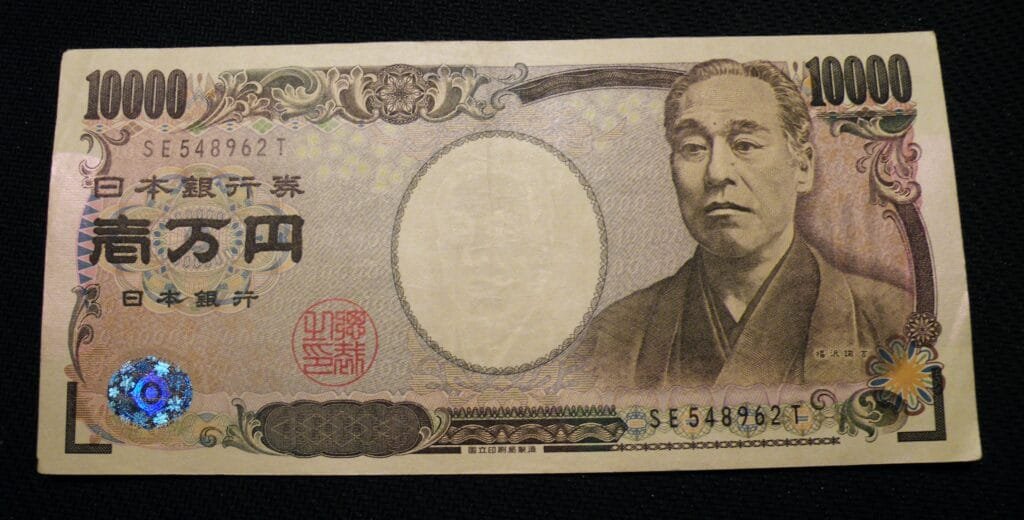
Another source of concern for immigration officials is your ability to support yourself. Generally speaking, you’ll need to have a job that pays at least 3 million yen per year, and produce a contract and/or pay slips to prove this.
Of course, especially in today’s volatile job market, simply being employed does not equate to financial stability. Hence, the immigration bureau will also need to see that you have money set aside for the proverbial “rainy day”.
As a minimum, you should look to amass about 600,000 to 800,000 yen in savings before you apply for permanent residency. Of course, the more you have, the better. Extra savings will also help to offset a salary shortfall if you earn less than 3 million yen per year.
Be Good, Don’t Get in Trouble
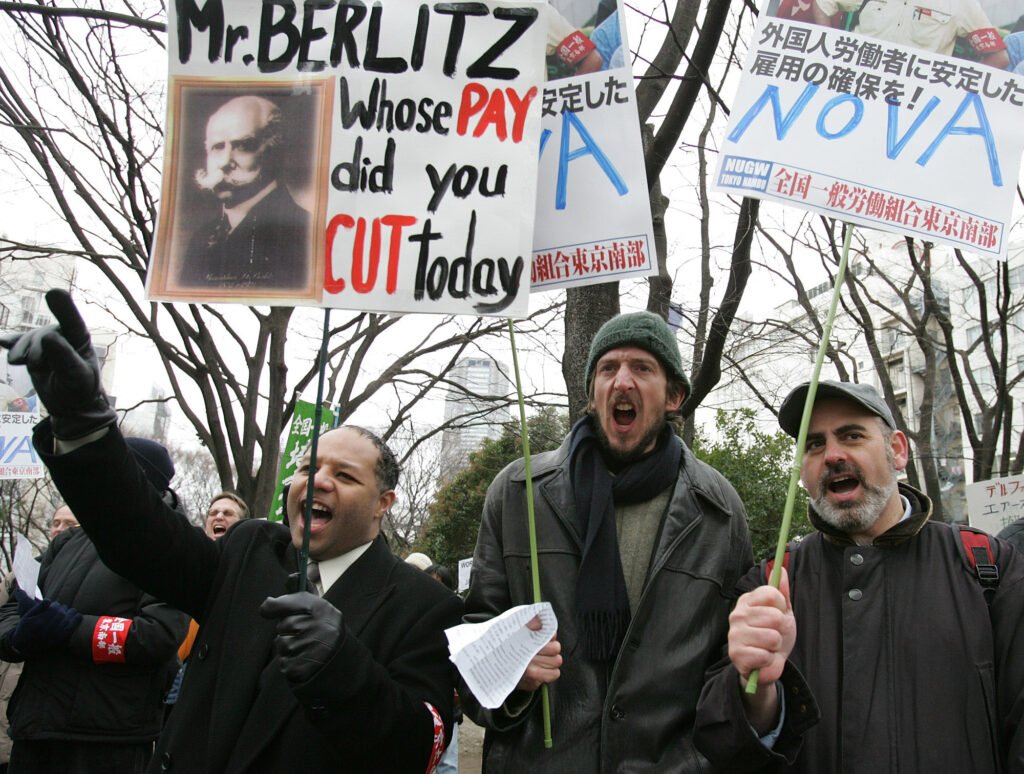
As the immigration bureau’s own website puts it, applicants need to show that they are people of “good character and good conduct”.
In other words, if you have a criminal record in Japan, even for a minor offence, it could heavily impact your chances of being granted permanent residency. You’ll also want to avoid any public association with any politically radical movements or public protests against the government. Again this is something of a grey area, but you want to avoid the perception, in the eyes of immigration officials, that you could be a “trouble maker” in the future.
Get a Guarantor

If you’ve ever tried renting an apartment in Japan, then you may already be familiar with the concept of the guarantor. In the case of apartment rental, this means a Japanese citizen, of solid social and financial standing (not broke and not a criminal), who can sign a guarantee to cover any costs incurred if you don’t fulfill the financial conditions of your lease.
However, when applying for permanent residency, the role of the guarantor is a little different, and in fact, far less problematic for them and for you.
For starters, in the case of a permanent residency application, your guarantor can be either a Japanese citizen or a current permanent resident of Japan.
However, unlike an apartment guarantor, the commitment here is purely “moral” rather than financial. In other words, your permanent residency application guarantor is there to take responsibility for your behavior, not any debts you may run up. It is, in essence, merely a paper exercise. Basically, someone who will say you’re a good person and deserve that permanent residency.
Your guarantor will, however, have to provide some documents to prove their identity and their income level.
To Recap
So, to sum it up, whether you are applying for permanent residency after 1, 3 or 10 years, you will need to prepare the following in advance:
- Your current visa, workplace contract and salary proof
- Proof of National Health Insurance Enrolment
- Proof of at least 5 years of income tax and municipal tax payments
- A guarantor letter from a qualified candidate (see above).
- Bank statements to prove you have sufficient savings and accessible funds.
- A completed application form. Available here
How Long Do I Need to Wait After Applying for Permanent Residency?
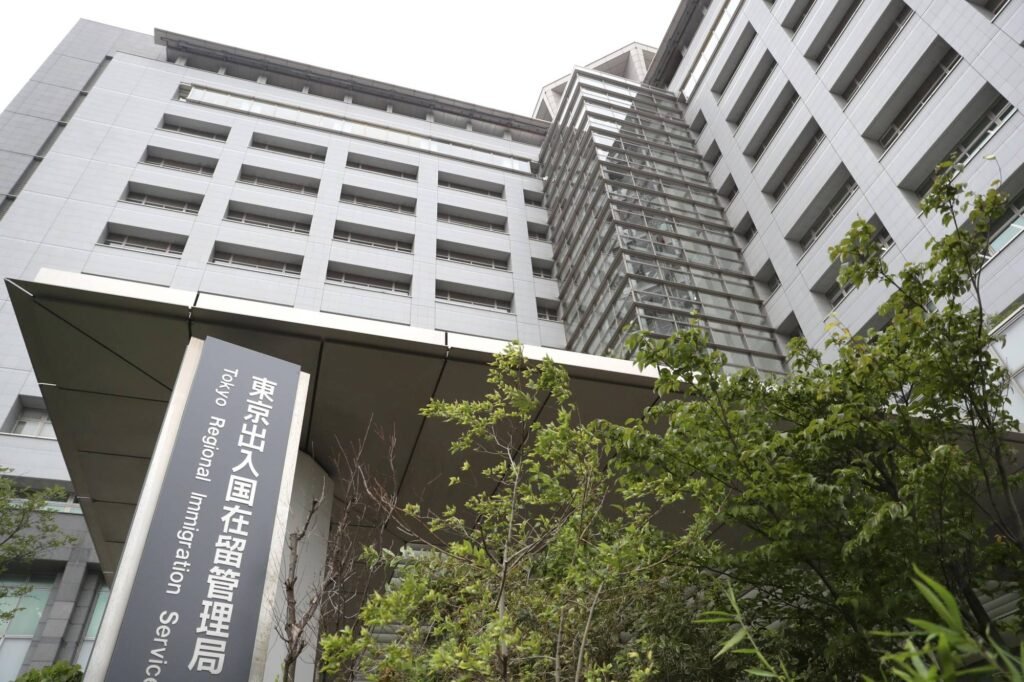
As you can appreciate, the process for obtaining permanent residency is considerably longer and more involved than a standard visa renewal or change of status. As such, the process can take anything from 4 to 8 months from initial application to finally getting your new ID card. You may be asked for additional documentation during the process. In some cases, immigration officials may also request that they interview you, to clarify certain points of your application, though this is rare.
Please also bear in mind that if your current visa expires during the application process, you will need to renew it in the meantime, while you wait.
This Seems Like a lot of Effort, why Bother?
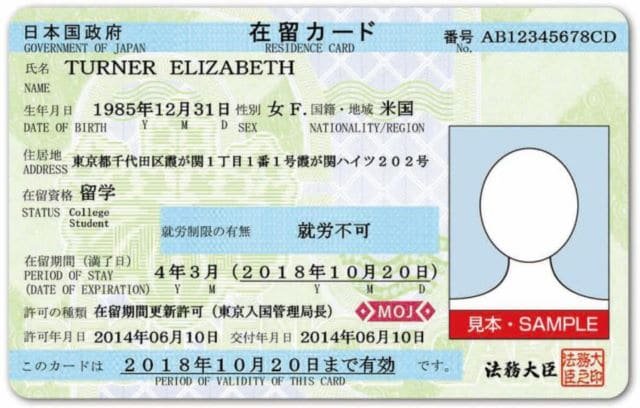
Beyond just negating the need to go to the immigration office every year to renew your visa, permanent residency offers a number of other benefits.
Firstly, getting a home loan or indeed any form of finance from a bank suddenly becomes much easier. To be honest, without either permanent residency or a Japanese spouse, your chances of obtaining such a loan are highly unlikely.
On the subject of homes, should you wish to do so, being a permanent resident also makes it easier to gain access to public housing.
In addition, you will no longer be bound to one form of employment. For example, Assistant Language Teachers (ALTs) who work in public schools teaching English cannot work in private ESL schools (Eikaiwa) unless they apply to immigration for special permission. With Permanent Residency you can do any kind of work you like. Indeed, taking on a series of part time jobs can be far more lucrative than one single job, especially in the English teaching industry.
Keep Yourself up to Date
Japan is changing, and so too will immigration policy. So please be sure to consult with a qualified legal professional before you go ahead and submit your application for permanent residency.
Good luck!



